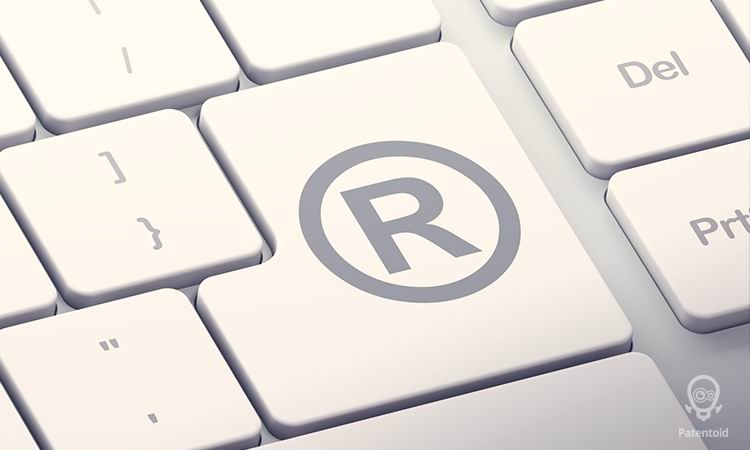What Is a Trademark?
The purpose of a trademark is to differentiate a product or service from other products or services. Its primary goal is to protect consumers from confusing a specific product/service with another rival product/service.

There always has to be a clear distinguishing element to a trademark - e.g. a specific name or logo.
Common words, e.g. the word “Table,” cannot be registered as a trademark for tables. However, e-Table should be eligible for registration. When registering a common word, you need to prove it has a so-called “distinctive character.”
A trademark legally protects you from imitations your competition might be producing. By registering a trademark, you make sure you have the sole right to use the trademark and your customers are therefore protected from confusing it with a rival brand.
The Registration Process
Within the European Union, trademarks are managed by the European Union Industrial Property Office.
First, the trademark is classified according to the Nice classification of goods and services. Then, it is necessary to make sure a similar trademark hasn’t already been registered.
After filling out the application, all the necessary materials are filed at the Industrial Property Office. After filing the application successfully, the trademark is published for a duration of three months. During this period, anyone can step forward with objections to the trademark being awarded to you. When the three months have passed, the trademark is marked valid and you can start using the registered trademark symbol – the Circle R ®.
Types of Trademarks
The most common types of trademarks are:
Word Mark
Any name or slogan can be registered as a word mark. It has to be made up of one or more words. The text needs to have a distinctive character.
E.g. the name of the car company “Škoda”
(Only Latin alphanumerals with no diactritics (a-z), Arabic numerals (0-9) and Roman numerals are allowed, as well as the following characters: ë ö ä ü ° ! @ # % & * ( ) ? . , ; : + -/ _ = § ě š č ř ž ý á í é ů ú ť ď ň ó $ " ')
Figurative Mark
A figurative mark is a mark made up of a specific symbol/drawing. Again, it’s necessary for the mark to have a distinctive character.
E.g. A picture of an apple with a bite mark.
The figurative mark category now also includes what was previously classified as a “combined mark.” A figurative mark can therefore comprise of a figurative as well as a written part.
Colour Mark
A colour mark that is made up of a colour without an outline, or of a colour combination without an outline that can be created by submitting:
a) a reproduction of the colour and a reference to its code within a generally accepted colour code, or
b) a reproduction depicting the systematic arrangement of the colour combination in a predetermined uniform way and a reference to the colours’ codes within a generally accepted colour code; the colour mark can also include a description stating the systematic arrangement of the colours.
Three-Dimensional Mark
This type of mark is made up of a three-dimensional design. You can protect product shapes (e.g. chocolate bars) or packaging designs (e.g. boxes, bottles, etc.) this way.
E.g. The specific shape of a Coca-Cola bottle is trademarked.
Position Mark
This is a mark defined by a specific way a trademark is placed on or attached to a product. It shall be represented by submitting a reproduction that adequately shows the position of the trademark and its size or proportions compared to the relevant products. Elements that are not part of the subject of registration are to be marked visually (preferably by dotted or dashed lines). You can also attach a detailed description of how the trademark is attached to the product.
Pattern Mark
This comprises exclusively of a set of elements that repeat to create a regular pattern. It shall be represented by submitting a reproduction of the regular pattern. You can also attach a detailed description of the way the elements of the pattern repeat.
Sound Mark
A sound mark is a sound or a combination of sounds. It shall be represented by submitting an audio recording reproducing the sound or by submitting a musical score capturing the sound.
Motion Mark
This mark is made up of, or supplemented by, movement or a change in the position of the elements of a trademark. It shall be represented by submitting a video recording or a series of static images in the correct order – they can be numbered or accompanied by a description explaining the order in which they come.
Multimedia Mark
This is a mark consisting of the combination of image and sound, or including the said elements. It shall be represented by submitting an audio-visual file containing the combination of the image and the sound.
Holographic Mark
Holographic marks consist of elements with holographic characteristics and shall be represented by submitting a video recording or a graphic or photographic representation containing the views which are necessary to sufficiently identify the holographic effect in its entirety.
Other Marks
These are marks that are not included in the typology specifically described above. It can be represented by any form using the technology available as long as it can be reproduced in the register clearly, precisely, independently, comprehensibly, long-lastingly, objectively, and using an easily accessible method so that the relevant authorities and the public can clearly and precisely determine the subject matter of the protection granted to the owner of the trademark. A description can be attached to the submission.
Have you decided to start protecting your product or service? Just fill out a simple order form and registering a trademark will be a piece of cake, as patentoid.cz will take care of everything for you.



